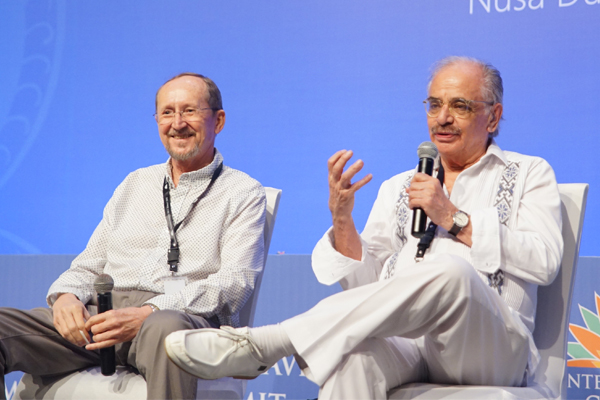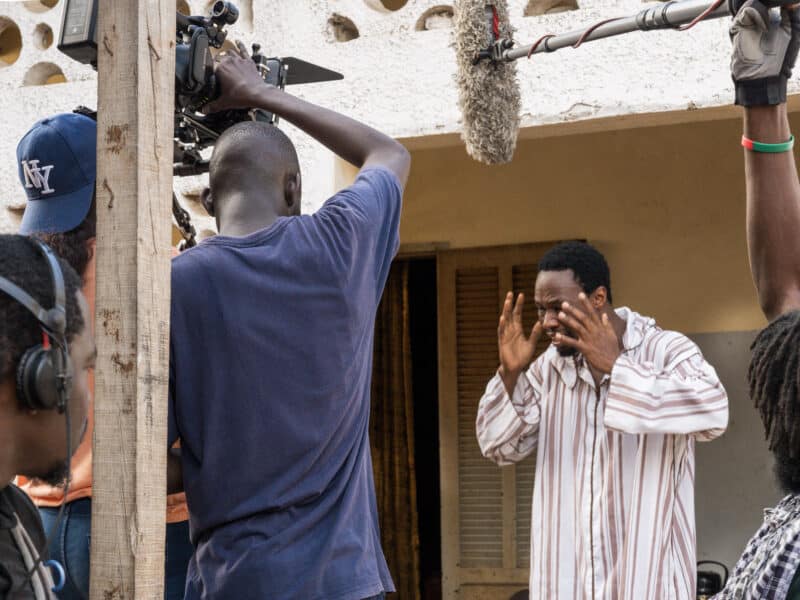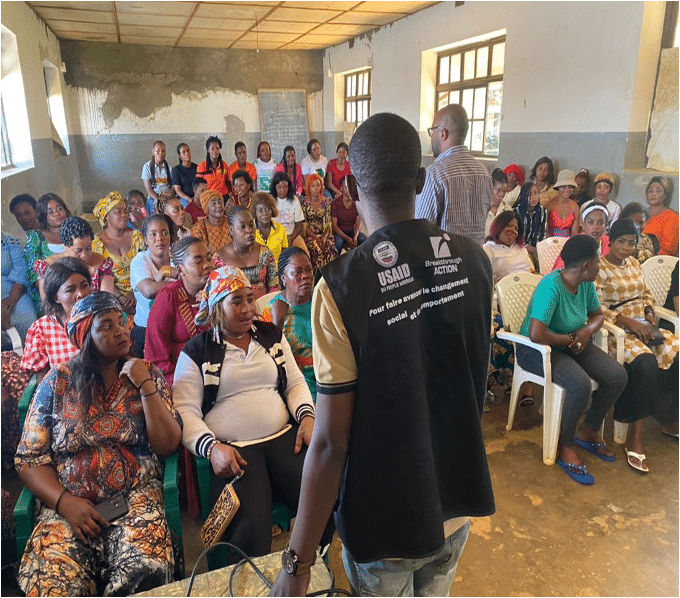The 2018 International Social and Behavior Change Communication Summit, which concluded April 20 in Nusa Dua, Indonesia, highlighted the use of Entertainment-Education to change behavior by intentionally weaving important health and social issues into powerful storytelling that draws in viewers by the millions. One of the pioneers in the field, Miguel Sabido, was a keynote speaker at the Summit and was given a lifetime achievement award at the event.
Now 80, Sabido began his career in Entertainment-Education decades ago when he was a television executive in Mexico and wondered if the medium could be used to change people’s behavior for the better. In 1975, his Ven Conmigo (“Come with Me”) telenovela motivated viewers to register for literacy classes using a study program offered by the government. Soon, he saw there were many ways to use TV to help others. His programs that spoke about family planning are widely credited with helping the population growth rate decline by 34 percent between 1977 and 1986.
Sabido sat down with Patrick Coleman, a longtime CCP staffer he has known for decades, to reminisce. The conversation has been edited for space.
Patrick Coleman: Talk about how you feel you’ve impacted people around the world and how what you’ve done has been transferred to other people in other generations.
Miguel Sabido: You met me 40 years ago and when I began I never thought it would become a worldwide movement, really. In Mexico we had an awful problem of adults that hadn’t finished primary school and so I said I can make commercial television and at the same time introduce some messages that could help this problem.
We did it and it worked and it was a big surprise for me that it worked. Then I kept going and developed [my theories].
… In Mexico, everybody was so surprised that I could do these kinds of telenovelas. My [work] made [the producer] a lot of money.
When David Poindexter [another leader in the Entertainment-Education field] took me to India to meet Prime Minister Indira Gandhi, I was really surprised because they treated me like a celebrity, like a rock star, really. I didn’t know why they were so excited about this. Finally, I understood that the Entertainment-Education can be and should be used to solve the big enormous problems of humankind. You are my friend and you knew me at the time and I didn’t realize how important really. I thought really I’m helping adults at some level to go back to school and suddenly the Entertainment-Education began to grow and grow and grow. And now I’m so happy because I think that my effort now is helping many persons in the world, not only in my country, and it’s accepted in the academic world.
I feel very honored because this effort became the reason of my life. I feel very proud that you and the people consider me the father of Entertainment-Education. It’s a huge movement in the world.
Coleman: You should be proud. You’ve impacted more people over the last 45 years positively with your work than maybe any other human being. And you’ve inspired thousands of people.
Sabido: My method was called “entertainment, with a proven social benefit.” … You said no, it should be “entertainment education.” The term is not mine.
I come from a commercial, professional world. … If you don’t have ratings, if you don’t have commercial success, they say thank you, goodbye, see you later. I have an obsession to prove what I am doing works. [I am always asking other people] what is your evaluation? What is your proof? How have you proven your effort? …
All the time I want proof that people have changed their behavior – and by millions. [What’s] important for me is the big figures. My first telenovela sent more than half a million adults to keep studying. When I went so happy [to a colleague] and said, I have 32 rating points – a very high share – and I sent half a million people to keep studying. He said, “Only half a million?” [Laughs]
Coleman: Different people have different perspectives. You told me that’s one of the reasons you like this event, because it’s subtitled “What Works.”
Sabido: I don’t know who invented the name but it was a real genius. Until now, Entertainment-Education was very vague. You could have results or you could not have results and they say, I’m doing Entertainment-Education. From Bali on, it’s impossible – if you don’t have results, you are not doing Entertainment-Education. That is fantastic, really. Because now you have to give proof that your work “works” and it has to be replicable for another person. If my telenovelas have success, I have a duty to teach you how to do it.





